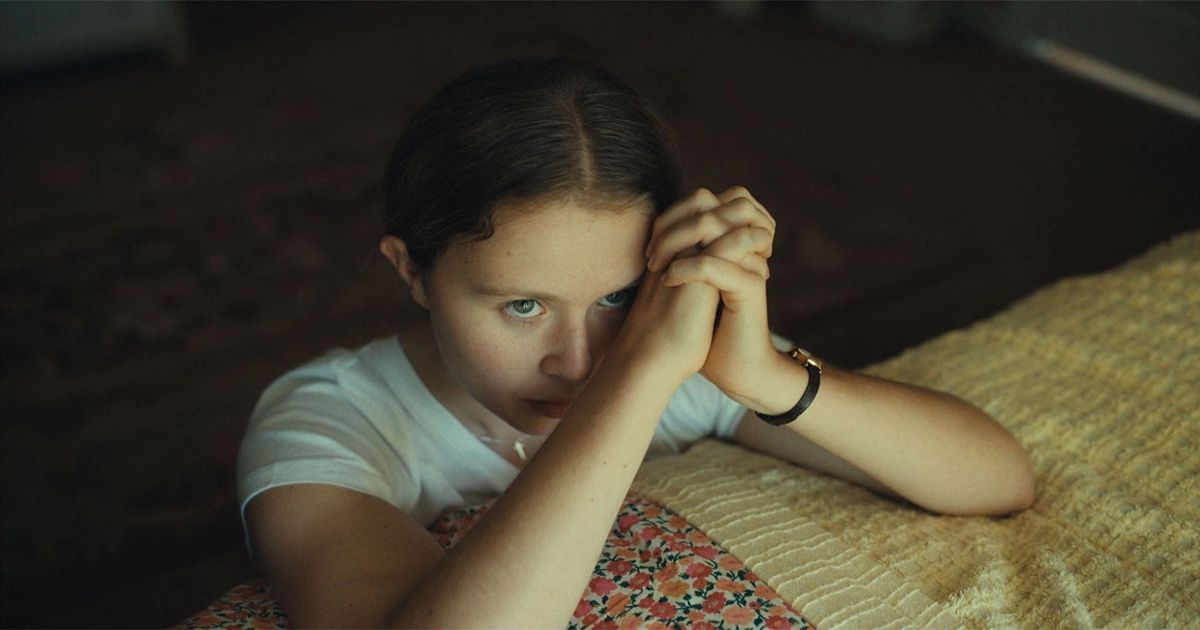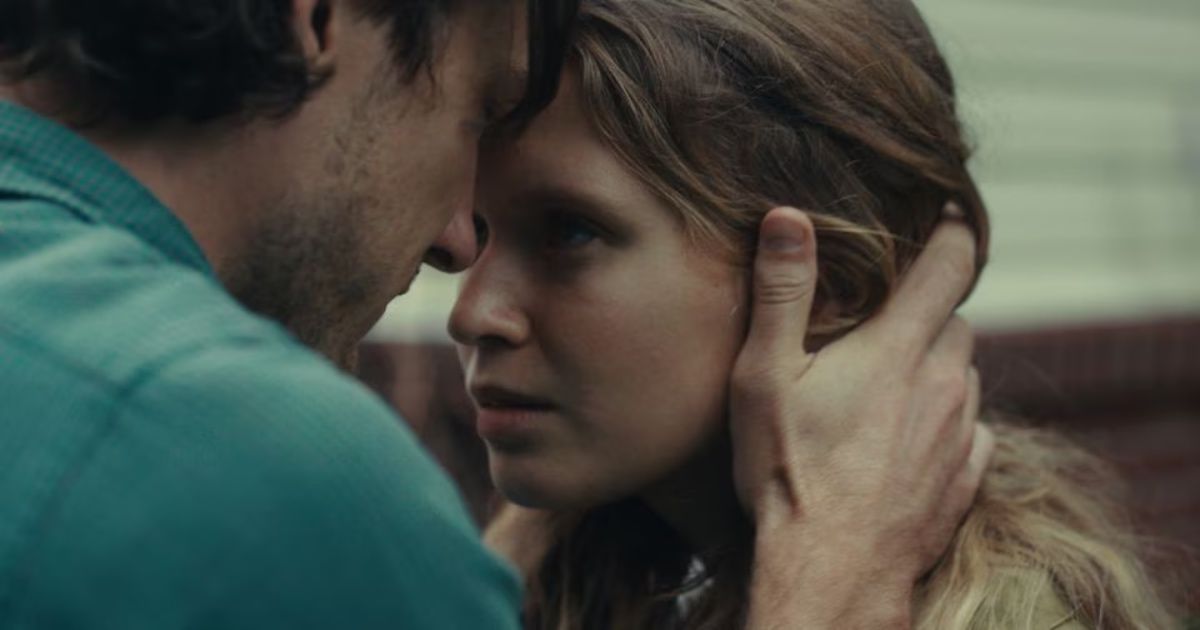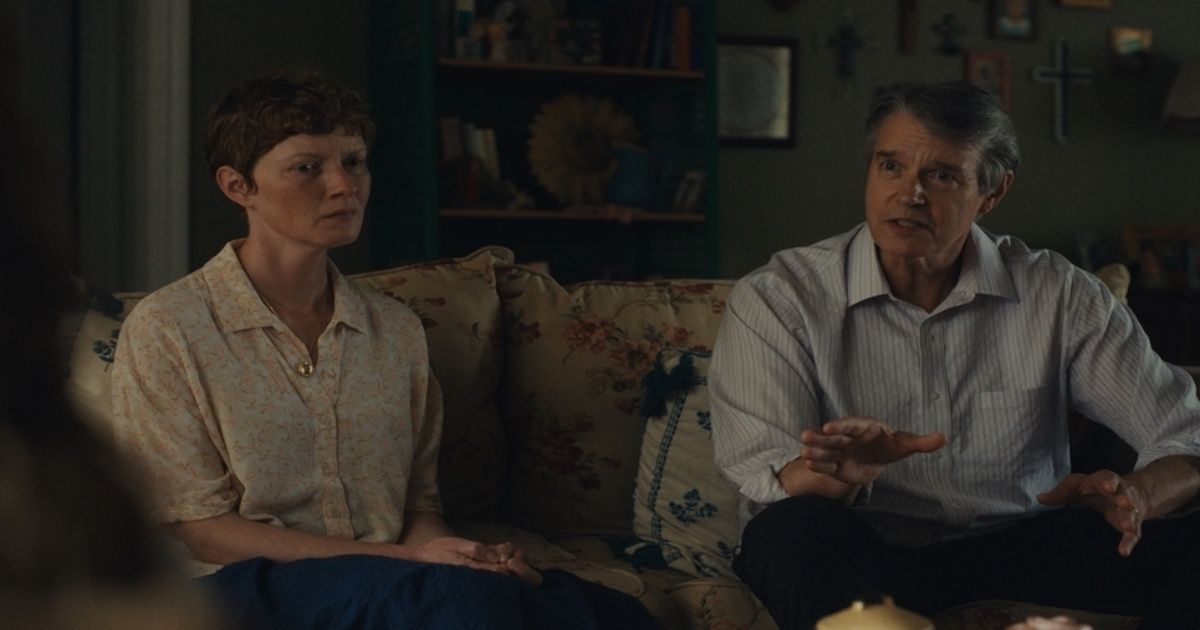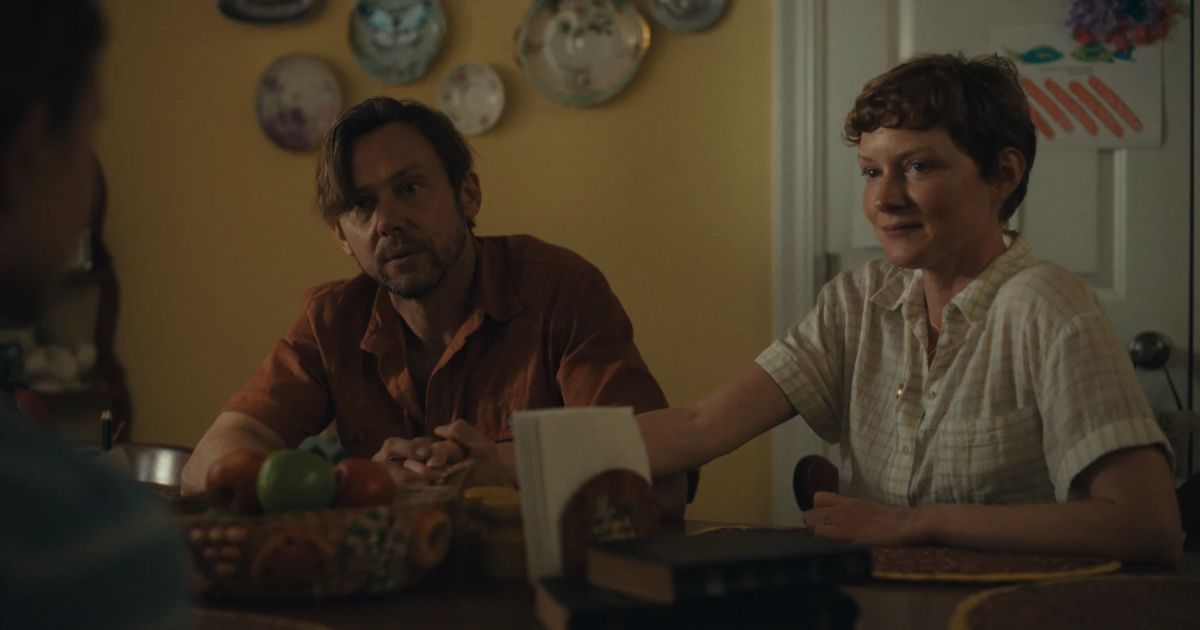The Starling Girl expanded into wider release last week and has been generating extremely positive reviews ever since. That’s no surprise. It’s a remarkable film written and directed with care and depth by Laurel Parmet. Headlined by Eliza Scanlen in a stand-out as 17-year-old Jem Starling, this exceptional coming-of-age tale is downright thought-provoking.
The story tracks Jem as she attempts to understand certain emotional boundaries in the fundamentalist Christian community she lives in with her parents (Wrenn Schmidt and Jimmi Simpson) in rural Kentucky. When the pastor’s son Owen (Lewis Pullman) returns from a trip, Jem and Owen bond over church activities, then later, surprisingly, even more so, beyond the confines of the church.
The film’s slow build is a marvel to experience at times, and the entire cast shines here as the director aptly creates a story void of judgment on all fronts. Laurel Parmet, Wrenn Schmidt, and Jimmi Simpson opened up with MovieWeb on the profound effect the film had on them. Read on.
A Deeply Personal Connection to the Story
Laurel Parmet made a name for herself creating short films with sensitive eye. With The Starling Girl, the writer-director dived even deeper, pulling from her own experiences in real life. The result delivers great cinema here, but it’s Parmet’s personal journey that also stands out.
“I had a relationship with an older man when I was teenager and didn’t see myself as a victim. I had a lot of agency in the relationship, and after it ended, I experienced a lot of negative, bad feelings about it. I didn’t think about for a while, then pushed aside,” the writer-director shared. She continued:
Years later, I was in Oklahoma doing research for a different project and I met a group of women from a patriarchal church and learned about their beliefs. They believed that it was a woman’s responsibility to not lead a man into temptation, and there’s a lot of shame just around their sexual desires.
“My first reaction to that was, ‘That’s very backwards,’” Parmet added. “But the more I thought about it, the more that I saw what we had in common, just in terms of how we grew up, and the attitudes we had about our desires, and our bodies and sexuality. Seeking approval and men and sexual shame are these universal experiences, no matter how you grew up. This was a critical turning point for me. It made me reflect back on my relationship in ways that I hadn’t before and start to ask, ‘Well, why did I have this? He took advantage of me.’ I decided I wanted to tell a story looking at my experiences and set it in this world that is reflective of our own world. We are also very affected by conservative Christian thought in our culture. It literally affects my life day to day, and it affects us, too. I sought to understand that better.”
Finding Eliza Scanlen
Parmet was born in Los Angeles and lived in New York for many years, where she sought out to create compelling stories. As she developed The Starling Girl, eventually Eliza Scanlen came across her radar. In fact, when she first saw Scanlen in the great Sharp Objects, she was “blown away” by the young actress.
“Immediately, I felt she was exactly who I pictured for this role,” Parmet beamed. “Eliza can straddle lightness and darkness so well. She has this innocence, but she’s also so wise beyond her years. I forget how young she is sometimes. She has this ferocity boiling underneath, too, which is so important for the character. She’s my favorite kind of actor, my favorite kind of collaborator.”
When asked if creating The Starling Girl was cathartic on some level for her, Parmet shared: “Yes, mostly. I still don’t know how to feel about my situation. Some days, I feel totally taken advantage of. Other days, I’m like, ‘I don’t know, I was mature at the time.’ I just go back and forth on how I feel about it. And I always have, but I think I feel that now, I’m okay with that. I don’t need to have like a definitive answer about what it was like for me personally; I can sit with that and be okay with it.”
Wrenn Schmidt on the Film’s Portrayal of Belief
Wrenn Schmidt, who previously starred in For All Mankind and Outcast, was immediately enthralled with the script when the project came her way. As Heidi, Jem’s strict mother in the film, she felt the role was a welcome challenge. Heidi is a complex character and Schmidt embodies her so well here. Beyond feeling moved by the story, the film also allowed the actor to ponder some of the deeper messages here — faith, belief, a strict adherence to rules and conduct.
“I also felt that this was a good time for the film to come out because maybe now, more than ever, it’s very difficult for people to engage with other belief systems different from their own,” said Schmidt. “At the root of all of that is really something emotionally moving and personal to people. Finding a way to understand each other is one of the beautiful things we can do. In some ways that’s something we as actors are being asked to do in a film, where that foundation is very different from most of our personal experiences.”
She went on to note that the film brings up questions about one’s belief systems, allowing audiences to question the idea of feeling constrained. The Starling Girl also raised many questions about the role of women in the world, and, particularly, in men’s lives.
“I liked how the film also raised questions about how beliefs impact young women and men — about how they should behave, how they should act, how they should be seen, how they should or shouldn’t be sexual,” Schmidt added. “There’s really a big question mark about how those belief systems impact each of our identities. But it’s such a confusing time to be a young woman, or to be a woman. There are so many conflicting messages about how to do what’s right and what’s wrong, and how one might be perceived. That’s one of the most interesting aspects of the film.”
Jimmi Simpson’s Personal Take on The Starling Girl
Audiences will recall Jimmi Simpson from his roles in Westworld and for lending his voice to Drednok in Star Trek: Prodigy. Simpson plays Jem’s father, Paul, in The Starling Girl, a role which forced him to ponder things in his own life.
“Paul was so intimately relatable to me. I think he’s kind of universally relatable,” Simpson shared. “The concept of Paul and even his presence in the film and how ultimately affecting he was on me, personally, prior to filming, was interesting to me. And it wasn’t a religious [affect]. It’s like, humans — we’re so rudderless. We’re looking for these guard rails of how to be okay. And mine was religion. Like, ‘Okay, this is what I should do to achieve a little bit of enlightenment or clarity on my life.’ And as I entered that situation, it kept consuming me.
“So, I kept kind of bending to its will, thinking, ‘Well, this is what I should do,’ and not really coming to terms with the fact that I’m disappearing,” continued Simpson. “It takes a lot of a lot of work to get out of a situation like that. And almost more universal is staying with that situation. And it’s the tragedy of human beings, whether it’s a relationship, a religion, a cult, or a diet.”
In addition to the solid cast here, Simpson sang writer-director Laurel Parmet’s praises, calling her “unflinchingly” talented. “I couldn’t believe how good she was. I watched her shorts online and her articulation of those tiny little stories were so clear, her hand-held cameras so beautiful. Then to talk to her and find out that she’s this sweet, modest, young woman who has just the deepest passions about storytelling […] it’s just so rare that a director is able to handle the material beyond a question of a doubt. I have no question she will be more of a brilliant storyteller; one we’ve needed to welcome into this business for a while.”
Catch The Starling Girl, from Bleecker Street, in theaters.
Stay connected with us on social media platform for instant update click here to join our Twitter, & Facebook
We are now on Telegram. Click here to join our channel (@TechiUpdate) and stay updated with the latest Technology headlines.
For all the latest Education News Click Here




